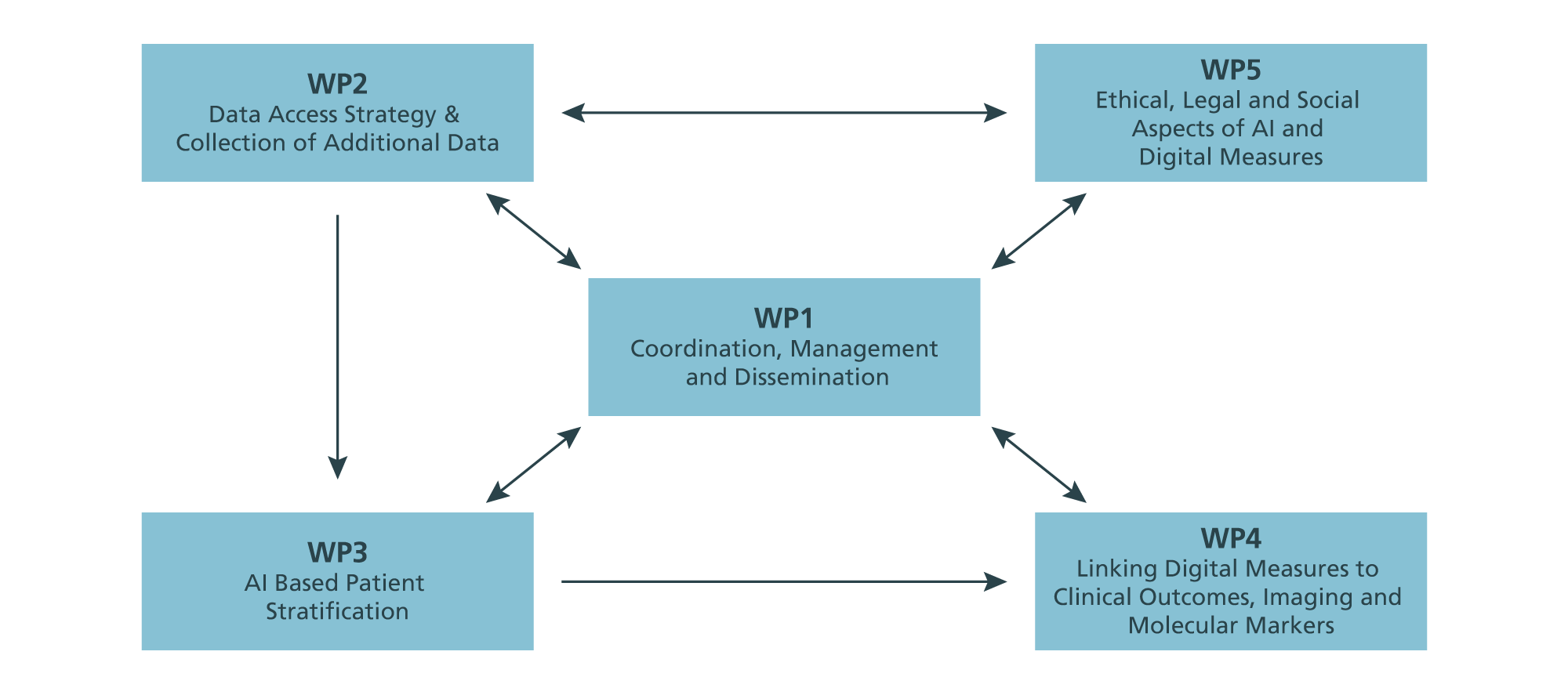The goal of WP3 is to apply AI algorithms for validating the potential of digital measures for better disease diagnosis and treatment dependent prognosis. A comparison to other data types (molecular, clinical, imaging) will be performed. WP3 will deliver digital outcome measures extracted from gait, face movement and video recordings, and it will use those measures to characterize patient subgroups identified via longitudinal clustering techniques. Finally, WP3 will assess the value of digital measures in comparison to clinical scores, molecular and imaging biomarkers to predict the progression of the disease.
Partners: Fraunhofer SCAI, Paris Brain Institute – Institut du Cerveau (ICM), University of Luxembourg, University Medical Center Erlangen, Telecom SudParis-IPP
Contact: Dr. Dijana Petrovsja Delacrétaz, Télécom SudParis –Institut Polytechnique de Paris Send email
